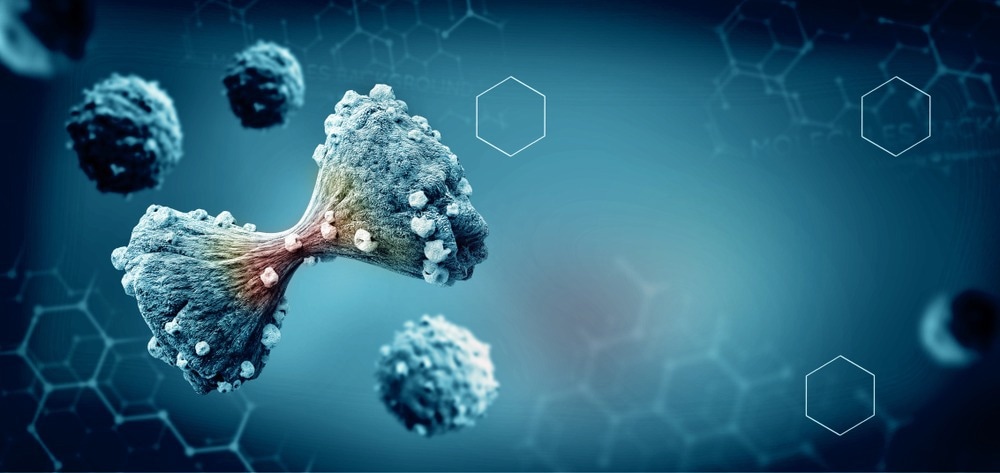
Image Credit: Giovanni Cancemi/Shutterstock.com
Conventional cancer therapies include radiation and chemotherapy, which kill cancer and healthy cells. Treatment-related tissue loss can be significant and even deadly in advanced stages of cancer. Modern cancer treatments that use nanoparticles can target cancer cells specifically while preserving healthy tissue.
Plant-derived nanoparticles (pdNPs) with therapeutic effects have been shown in recent research to be a viable substitute for conventional cancer treatments. Nevertheless, as of yet, no pdNPs have received approval as therapeutic agents against cancer.
A byproduct of the rice refining process, rice bran has little practical use and little market value. Nonetheless, it includes several substances, like γ-oryzanol and γ-tocotrienol, that have anticancer qualities.

Rice bran. Image Credit: wasanajai/Shutterstock.com
A group of researchers headed by TUS Professor Makiya Nishikawa in Japan created rice bran nanoparticles and evaluated their efficacy in mouse models to investigate rice bran's medicinal qualities.
Dr. Daisuke Sasaki, Ms. Hinako Suzuki, Associate Professor Kosuke Kusamori, and Assistant Professor Shoko Itakura from TUS Co-Authored the study.
In recent years, an increasing number of new drug modalities are being developed. At the same time, development costs associated with novel therapies have increased dramatically, contributing to the burden of medical expenses. To address this issue, we used rice bran, an industrial waste with anticancer properties, to develop nanoparticles.
Makiya Nishikawa, Professor, Tokyo University of Science
After processing and purifying a suspension of Koshihikari rice bran in water, rice bran-derived nanoparticles (rbNPs) were obtained for the study, and their anticancer effects were assessed. Strong anticancer effects of rbNPs were demonstrated when applied to a cancer cell line called colon26.
This resulted in programmed cell death and an arrest of cell division. The anticancer activity of rbNPs has been linked to the uptake of γ-tocotrienol and γ-oryzanol by cancer cells, which leads to cell cycle arrest and programmed cell death.
Furthermore, rbNPs inhibited the expression of proteins encouraging cancer metastases and recurrence, such as cyclin D1 and β-catenin, a protein linked to the Wnt signaling pathway involved in cell proliferation. Furthermore, only 26 cells showed a decrease in β-catenin expression due to rbNPs; non-cancerous cells were unaffected.
A key concern in the context of pdNPs is their low pharmacological activity compared to pharmaceutical drugs. However, rbNPs exhibited higher anticancer activity than DOXIL®, a liposomal pharmaceutical formulation of doxorubicin. Additionally, doxorubicin is cytotoxic to both cancer cells and non-cancerous cells, whereas rbNPs are specifically cytotoxic to cancer cells, suggesting that rbNPs are safer than doxorubicin.
Makiya Nishikawa, Professor, Tokyo University of Science
The researchers injected rbNPs into mice with aggressive adenocarcinomas in the peritoneal cavity—the space between the intestines, liver, and kidneys surrounded by the diaphragm, abdominal muscles, and pelvis—to verify the anticancer properties of rbNPs in the living body.
They found that tumor growth was significantly suppressed without negative effects on the mice. Furthermore, in a mouse lung metastasis model, the rbNPs dramatically reduced the growth of murine melanoma B16-BL6 cells that metastasized.
Rice bran is a great source of therapeutic pdNPs because of several factors. First, it is cost-effective compared to many other sources of pdNPs. In Japan, about 40% of rice bran is thrown away, making it an easy source of raw materials. Second, compared to previously published pdNPs, rbNPs have a higher preparation efficiency.
In addition to being a safe and effective anticancer treatment, rbNPs have extremely stable physicochemical characteristics. Before human clinical trials, a few factors need to be looked into, including developing separation technologies at the pharmaceutical level, evaluating production process control parameters, and assessing safety and efficacy in xenograft animal models and human cancer cell lines.
Finally, rice bran, an agricultural waste product, provides therapeutic pdNPs that are safe, affordable, and effective. They may also transform cancer treatment in the future.
By establishing a manufacturing method for rice bran nanoparticles with stable quality and confirming their safety and effectiveness, we can develop drugs for cancer treatment that are sustainable, eco-friendly, and affordable. Consequently, we may be able to help more cancer patients maintain good physical and mental health after treatment.
Makiya Nishikawa, Professor, Tokyo University of Science
Journal Reference:
Sasaki, D., et al. (2024) Development of rice bran-derived nanoparticles with excellent anti-cancer activity and their application for peritoneal dissemination. Journal of Nanobiotechnology. doi.org/10.1186/s12951-024-02381-z